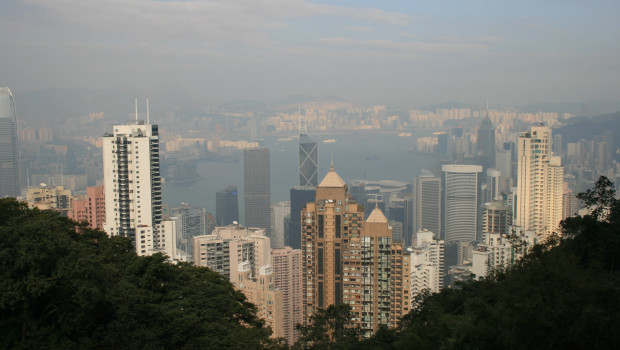Asia report: Evergrande plunges on return to trading

Markets closed in a mixed state in Asia on Thursday, with embattled property developer China Evergrande dropping almost 13% after a more-than-two-week trading halt.
In Japan, the Nikkei 225 was down 1.87% at 28,708.58, as the yen strengthened 0.19% against the dollar to last trade at JPY 114.09.
It was a red day for the benchmark’s major components, with robotics specialist Fanuc down 2.09%, Uniqlo owner Fast Retailing off 2.98%, and technology giant SoftBank Group losing 2.06%.
The broader Topix index was off 1.32% by the end of trading in Tokyo, closing at 2,000.81.
On the mainland, the Shanghai Composite was 0.22% higher at 3,594.78, and the smaller, technology-centric Shenzhen Composite lost 0.16% to 2,416.18.
South Korea’s Kospi closed down 0.19% at 3,007.33, while the Hang Seng Index in Hong Kong was last 0.47% weaker at 26,012.35.
China Evergrande Group plunged 12.88% after returning to trading following a halt that lasted more than a fortnight.
The company had missed a number of debt payments on its bonds in recent weeks, warning on Thursday that there was “no guarantee that the group will be able to meet its financial obligations under the relevant financing documents and other contracts.”
Pantheon Macroeconomics chief China economist Craig Botham said the troubled property developer’s return to the Hong Kong equity market was not a triumphant one.
“It had been suspended from trading due to discussions with another property firm regarding a potential sale of its property management arm, which would have contributed to addressing its sizeable liabilities.
“That deal has now fallen through, ending the suspension, but as the price action suggests, it has not helped the outlook.”
In the interim, Botham said Evergrande had also failed to sell its headquarters, after a prospective buyer pulled out due to worries that the firm’s liabilities could complicate the sale.
“The company also reported contracted property sales for September through 20 October of a minuscule RMB 3.65bn, compared to RMB 142bn in a similar period last year.
“Sales of any sort are clearly an issue at present,” Craig Botham said.
“The company may officially default as soon as this Saturday, as the 30-day grace period on a dollar note comes to a close.”
Seoul’s blue-chip technology stocks were on the back foot, with Samsung Electronics down 0.14% and SK Hynix losing 1.63%.
Oil prices were lower as the region went to bed, with Brent crude last down 0.69% at $85.23 per barrel, and West Texas Intermediate losing 0.41% to $83.08.
In Australia, the S&P/ASX 200 eked out gains of 0.02% to 7,415.40, while across the Tasman Sea, New Zealand’s S&P/NZX 50 added 0.09% to 13,125.98.
The down under dollars were both weaker against the greenback, with the Aussie last off 0.31% at AUD 1.3347, and the Kiwi retreating 0.35% to NZD 1.3934.